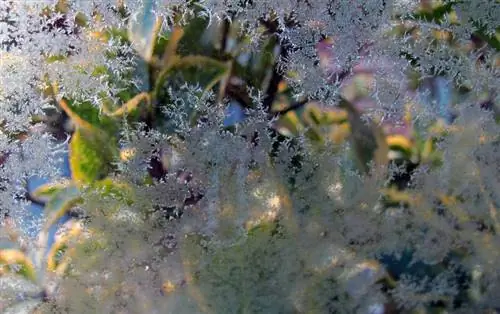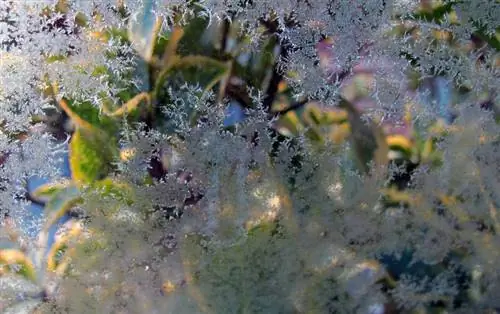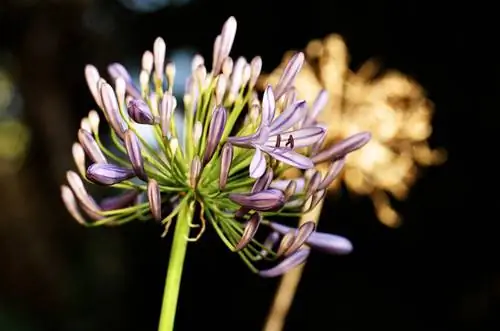- Author admin leonars@hobbygardeners.com.
- Public 2023-12-16 16:46.
- Last modified 2025-01-23 11:20.
The African lily has its natural origin at various altitudes in South Africa's nature. The African lily can be hibernated relatively late and hibernated early, but it cannot tolerate severe frost.

How sensitive to frost is the African lily?
The African lily does not tolerate severe frost, evergreen species can only tolerate light frost. Leaf-retracting agapanthus can withstand light frost for a short period of time. A cool, frost-free environment is ideal for overwintering, with temperatures between 0 and 7 degrees Celsius.
The frost tolerance of evergreen species
Evergreen African lily species can only tolerate temperatures that tend to be slightly negative, as frost can generally destroy the cell structure of the soft leaves. Plants that are brought into winter quarters too late often show yellow leaves, which soon become rotten and die. The ideal temperature for overwintering all African lilies is between 0 and 7 degrees Celsius. However, you shouldn't expect temperatures that are too warm for these plants, otherwise the plants may get yellow leaves and not bloom next summer.
Leaf-feeding Agapanthus and Frost
Due to their leaflessness in winter, leaf-retracting agapanthus can easily tolerate frost temperatures for a short period of time. However, African lilies are generally only hardy outdoors if it is in a mild, very protected location with a loose soil substrate without waterlogging.
The right care for wintering
You should adhere to the following factors when overwintering the African lily:
- little to no water supply in winter quarters
- Agapanthus overwinter as brightly as possible, leaf-feeding species can also overwinter darkly
- Winter out in cloudy weather if possible
In spring you can put your African lilies outdoors as soon as severe night frosts are no longer expected. However, you should be careful not to choose a very sunny day for wintering. Otherwise yellow spots may appear on the leaves as a result of “sunburn”.
Tips & Tricks
The African lily is sometimes touted in specialist shops as a hardy cultivated form. However, these promises can only be believed to a very limited extent. It's better to play it safe and overwinter the African lily in a cool but frost-free winter quarters. If you think the climate at your location is mild enough for planting, you can test this with little risk by planting a cutting that has been propagated by dividing the rhizome. However, you should always choose a protected location without waterlogging.






